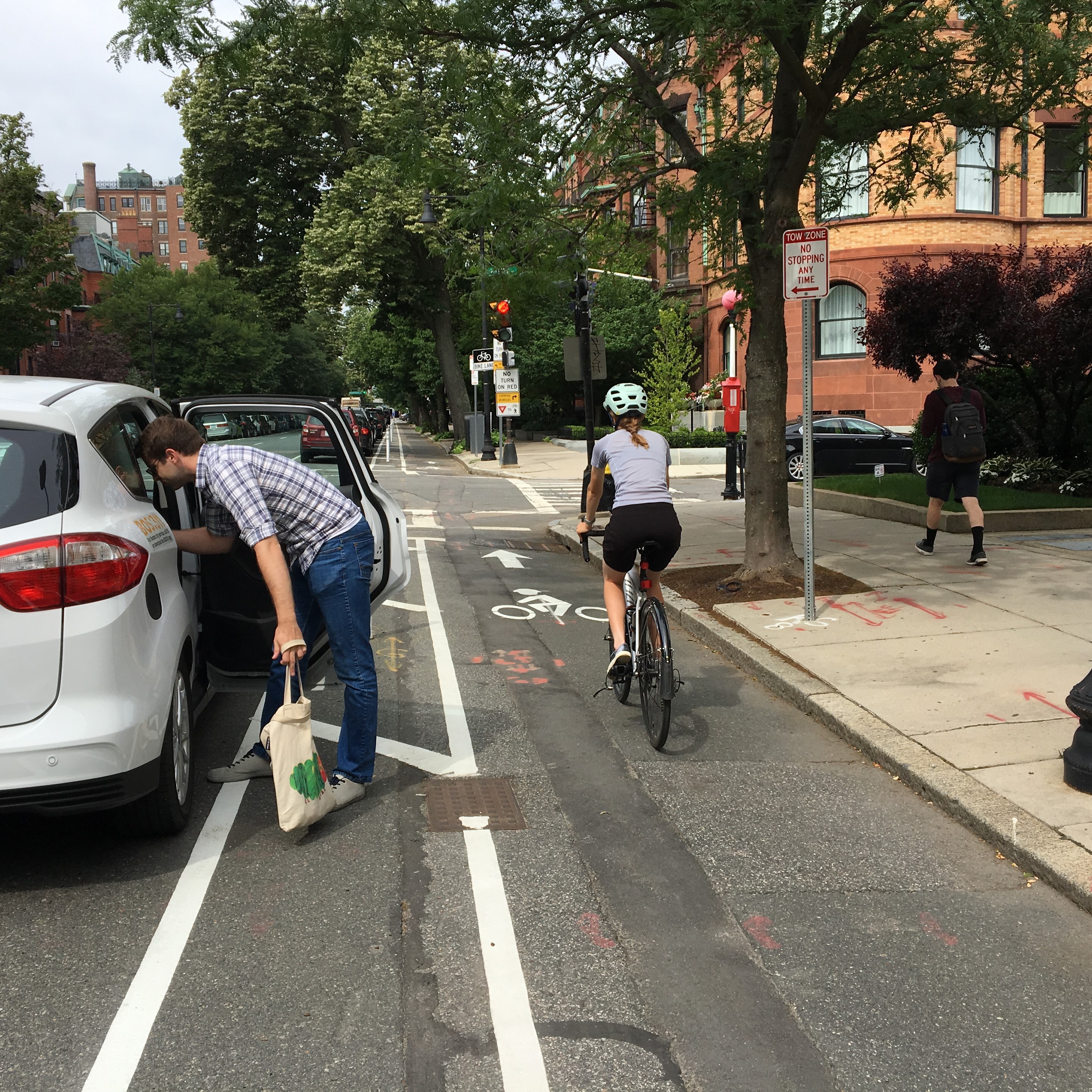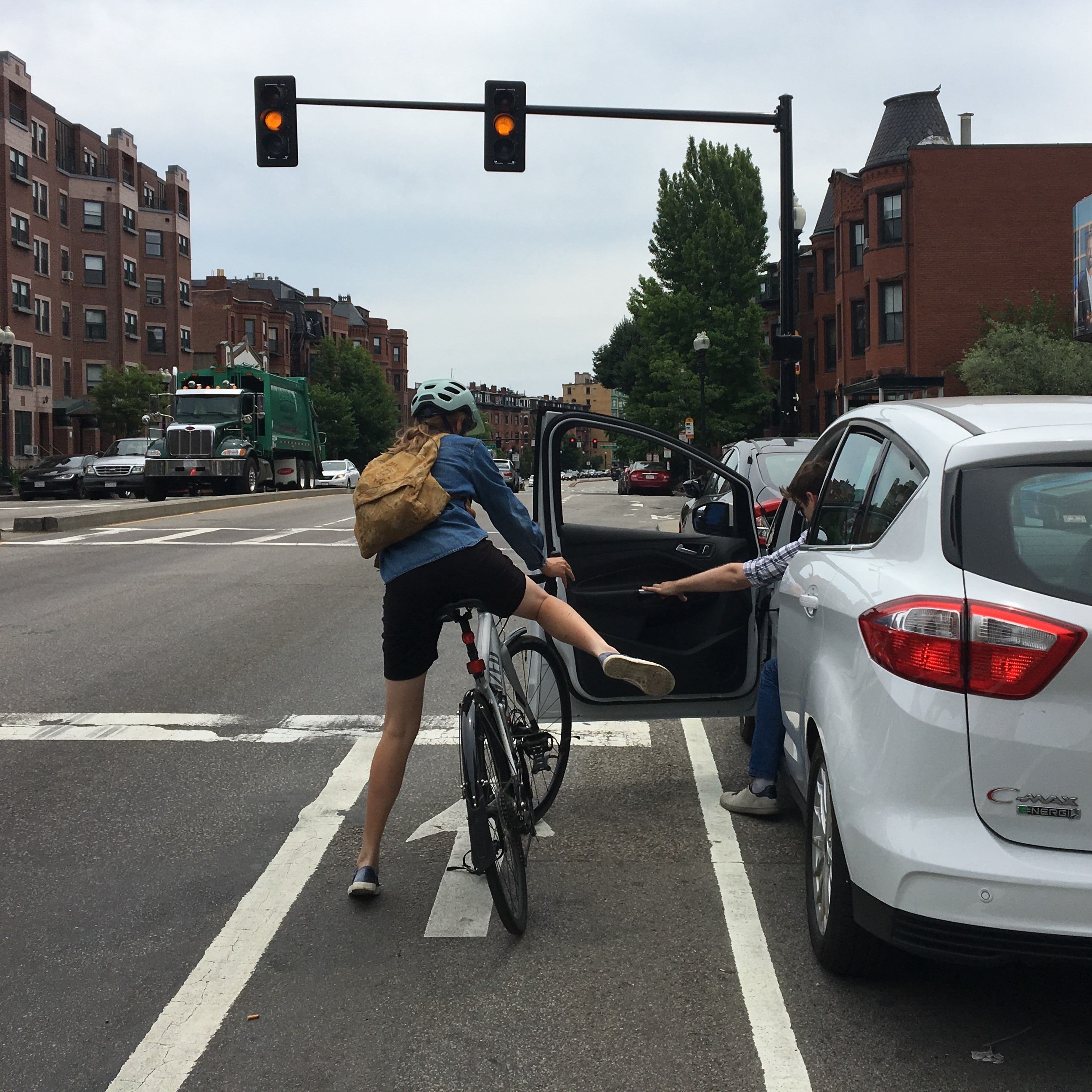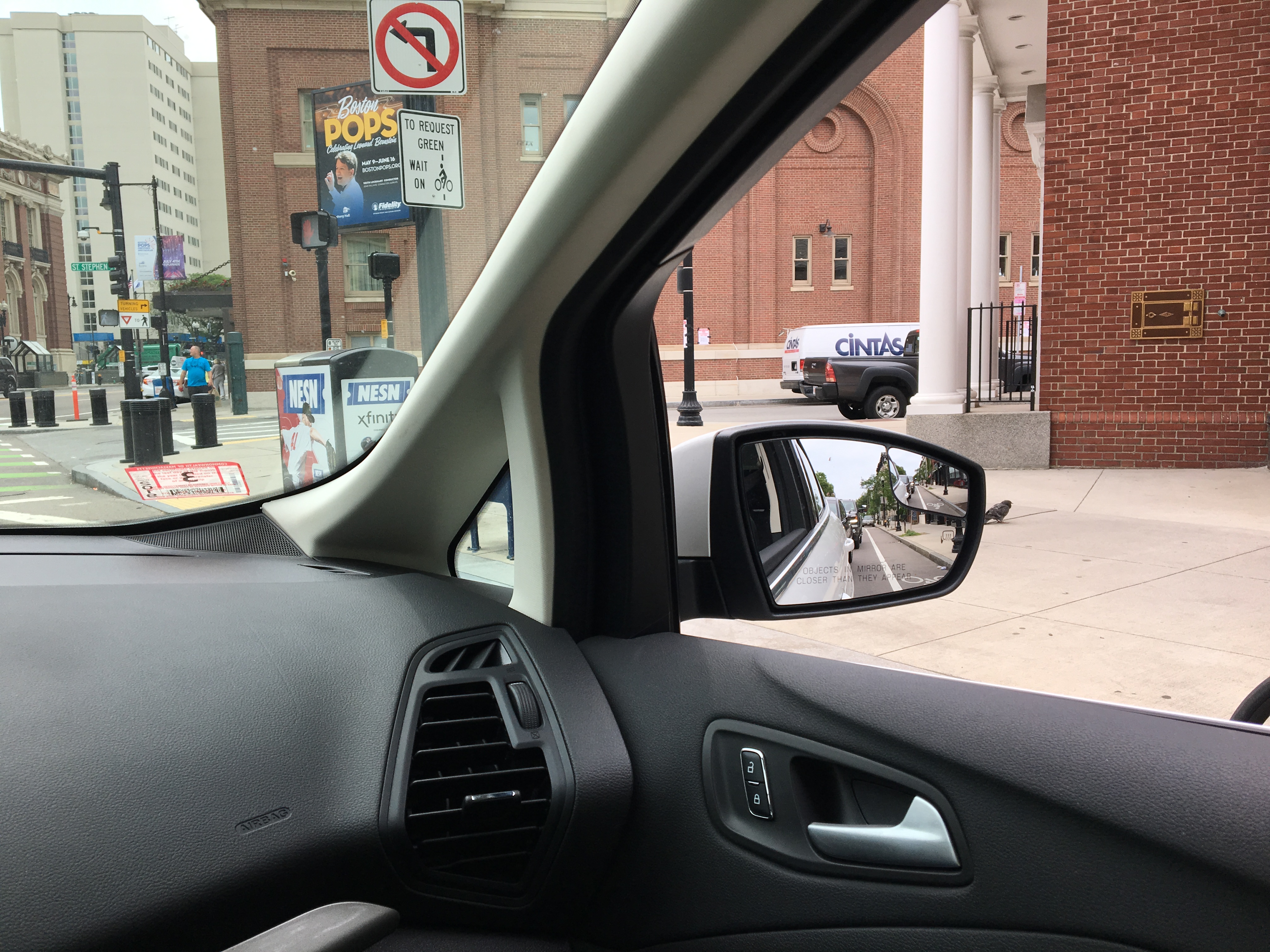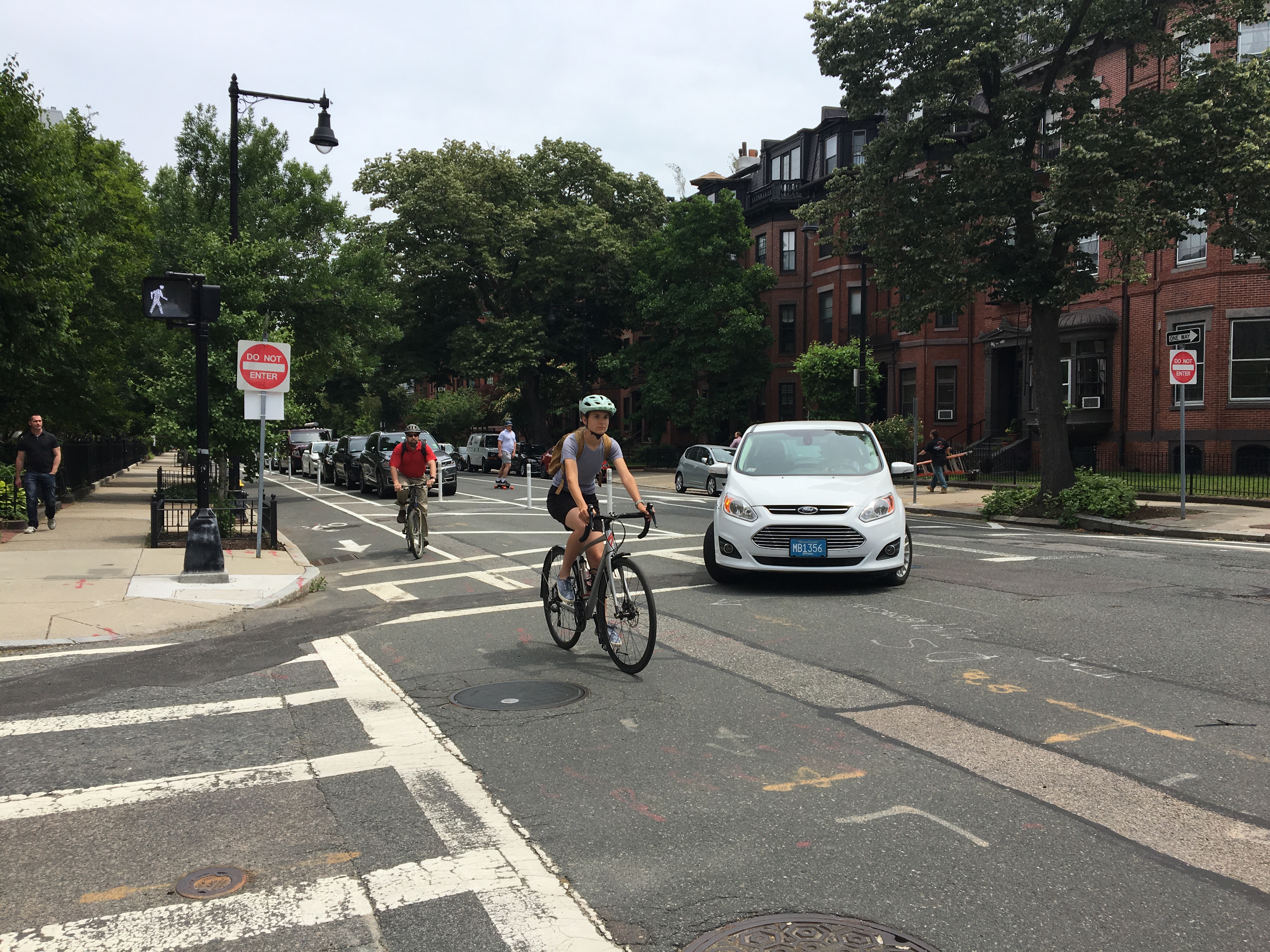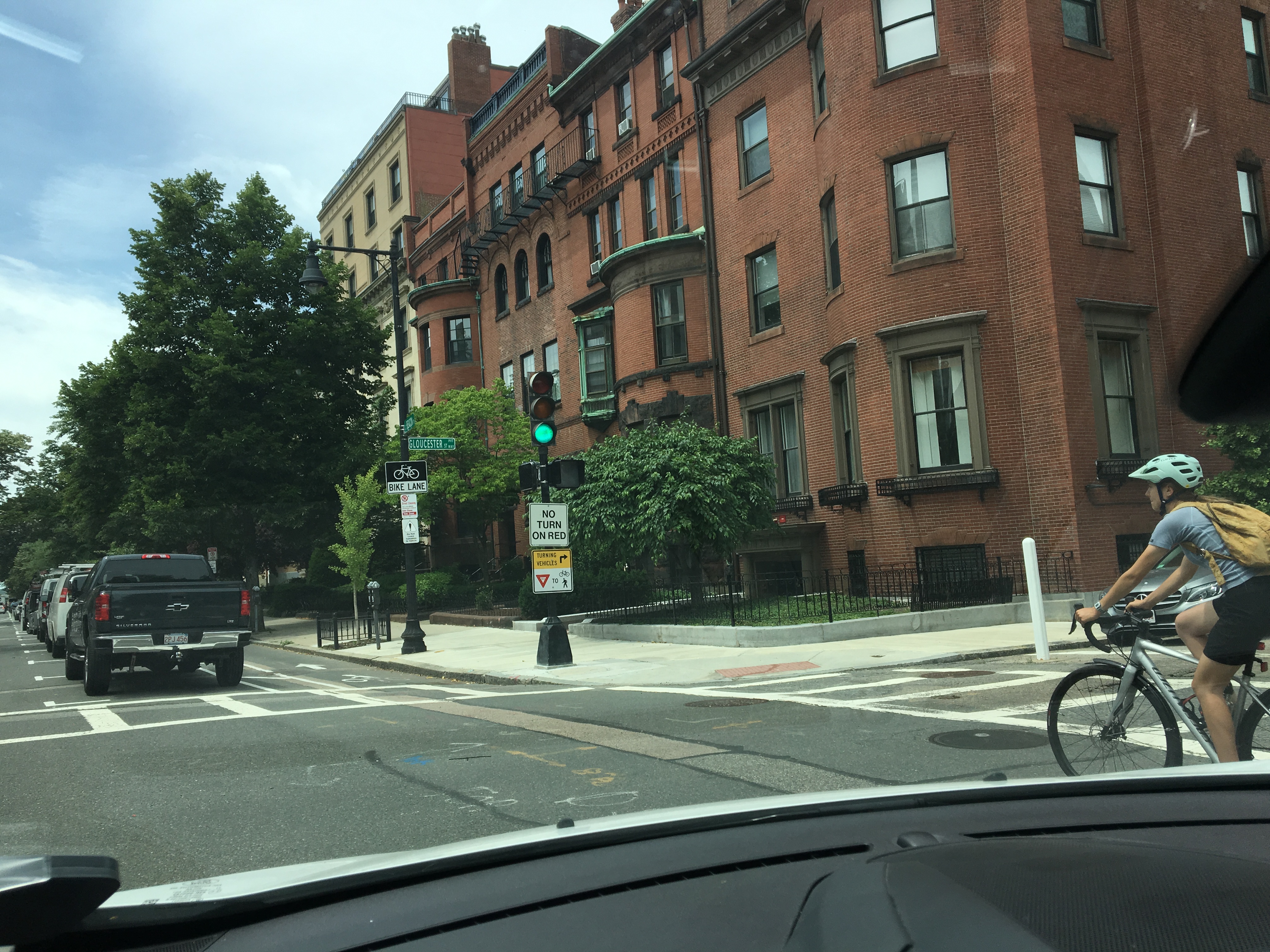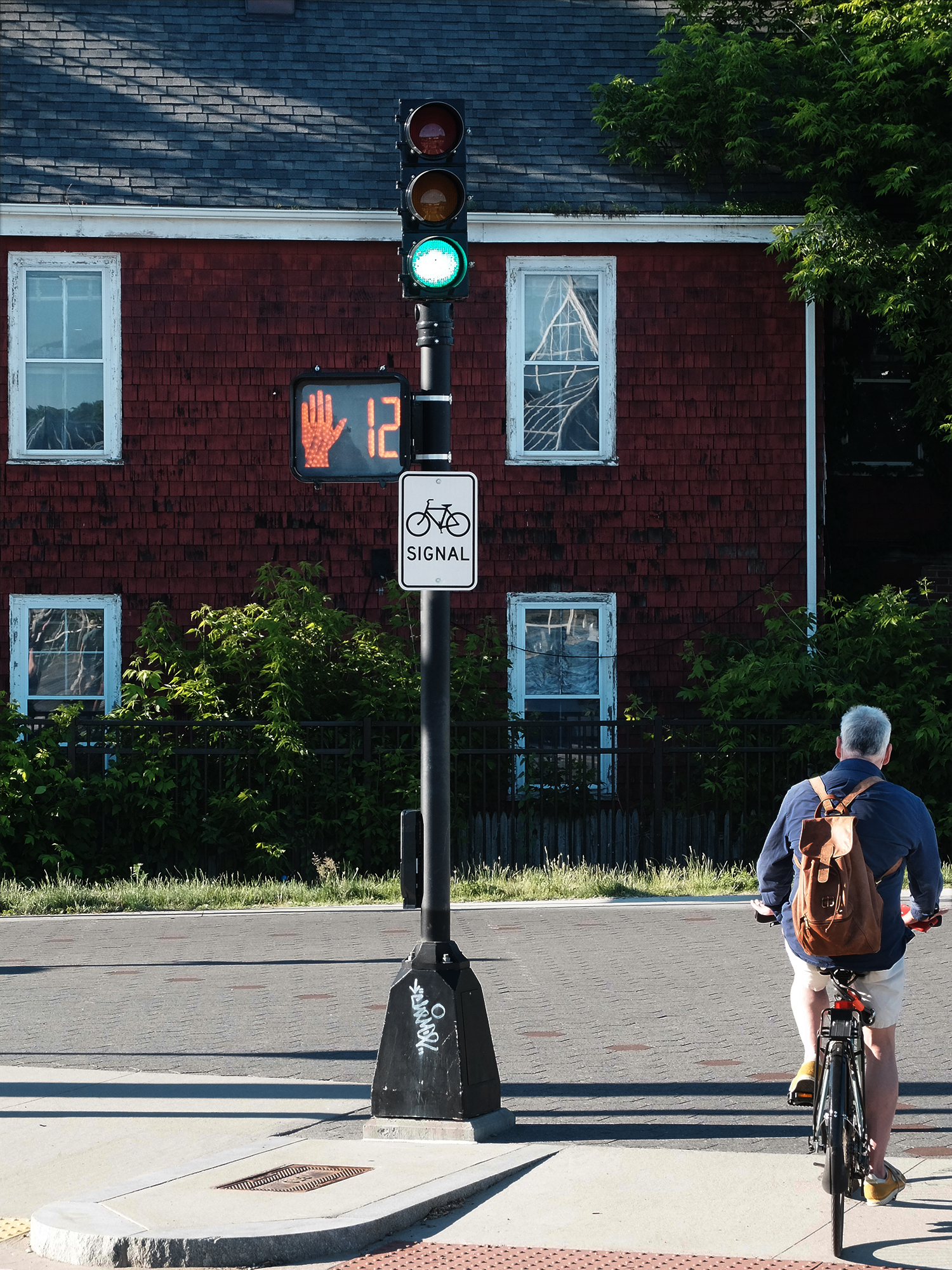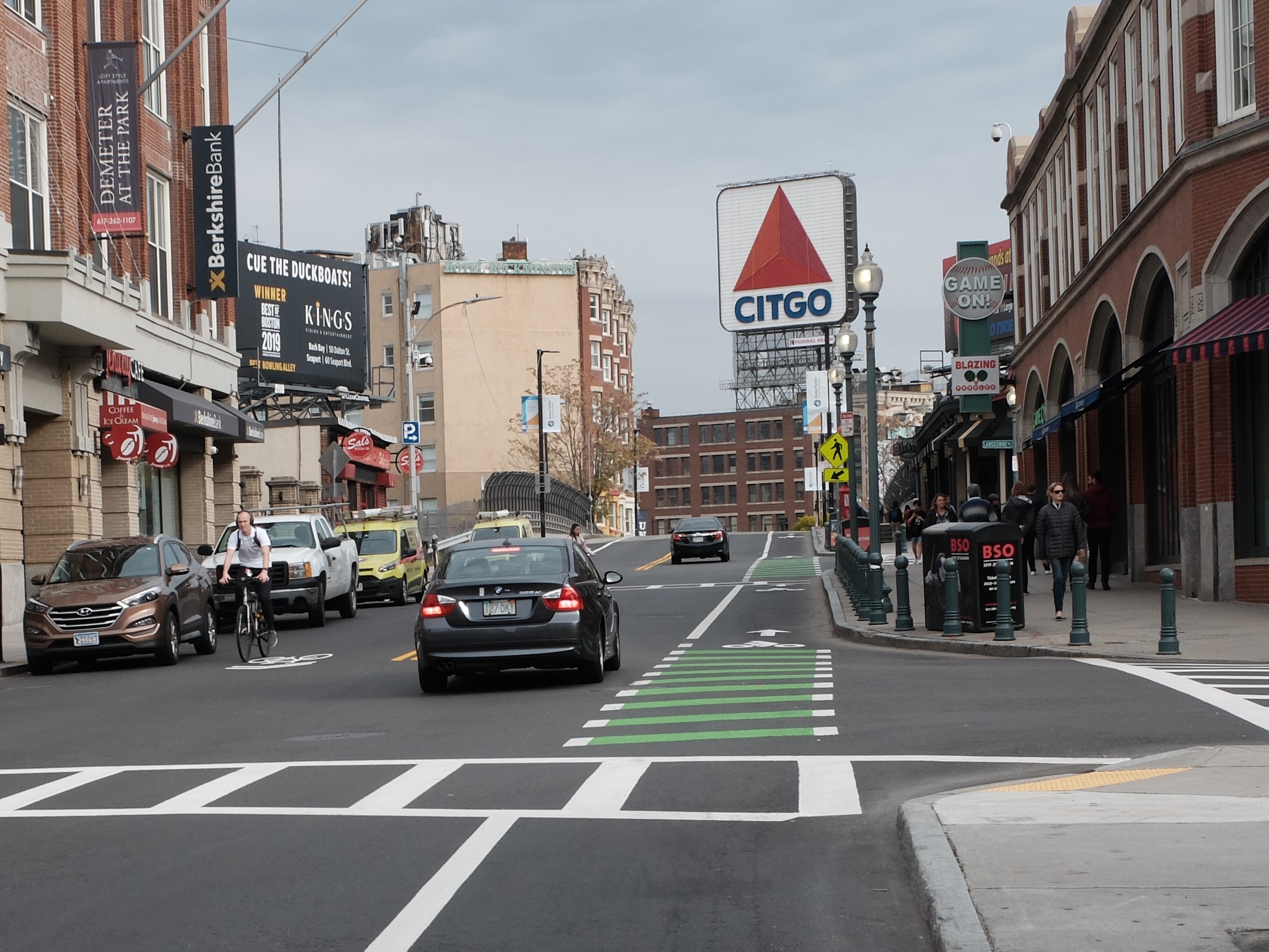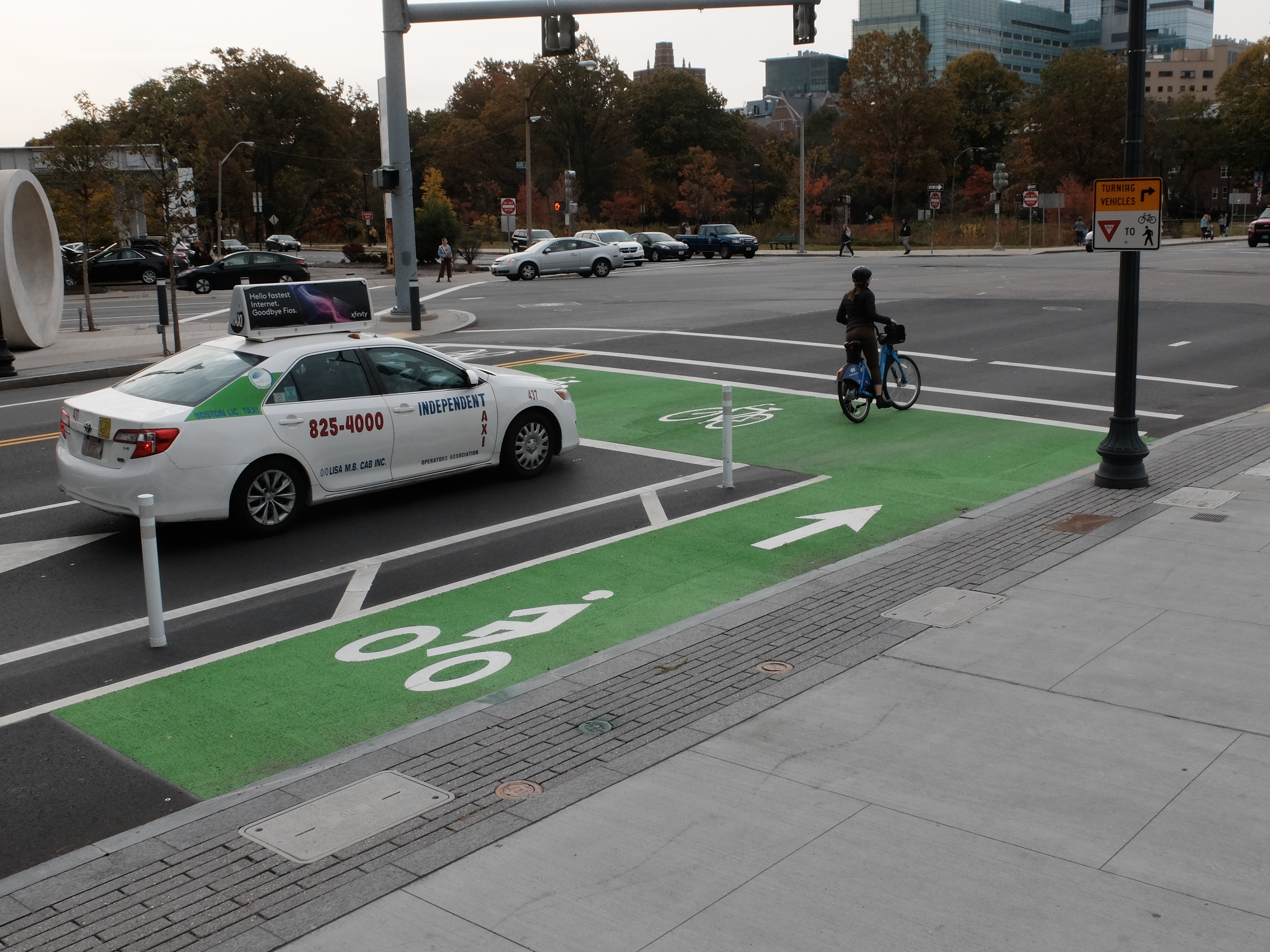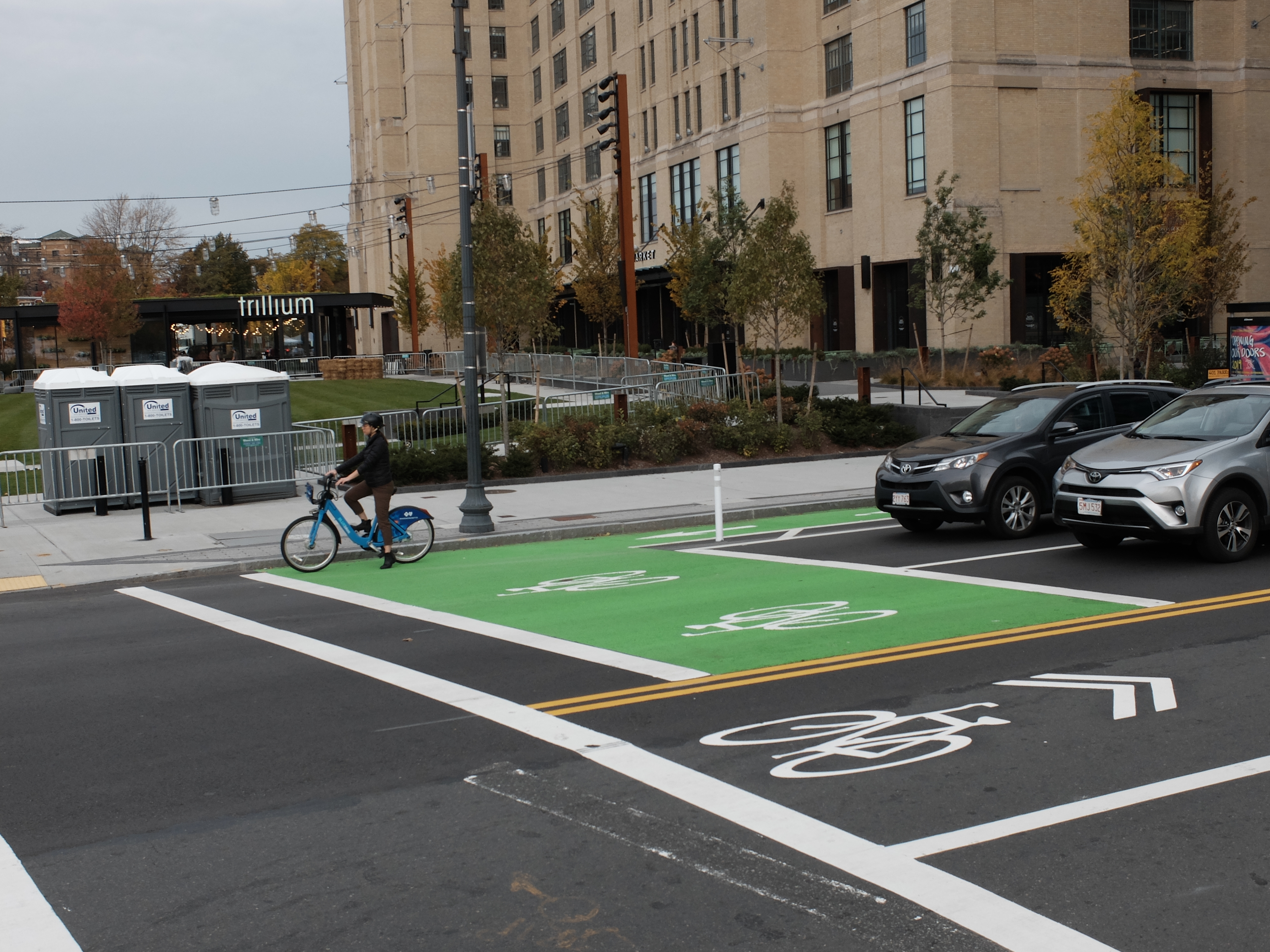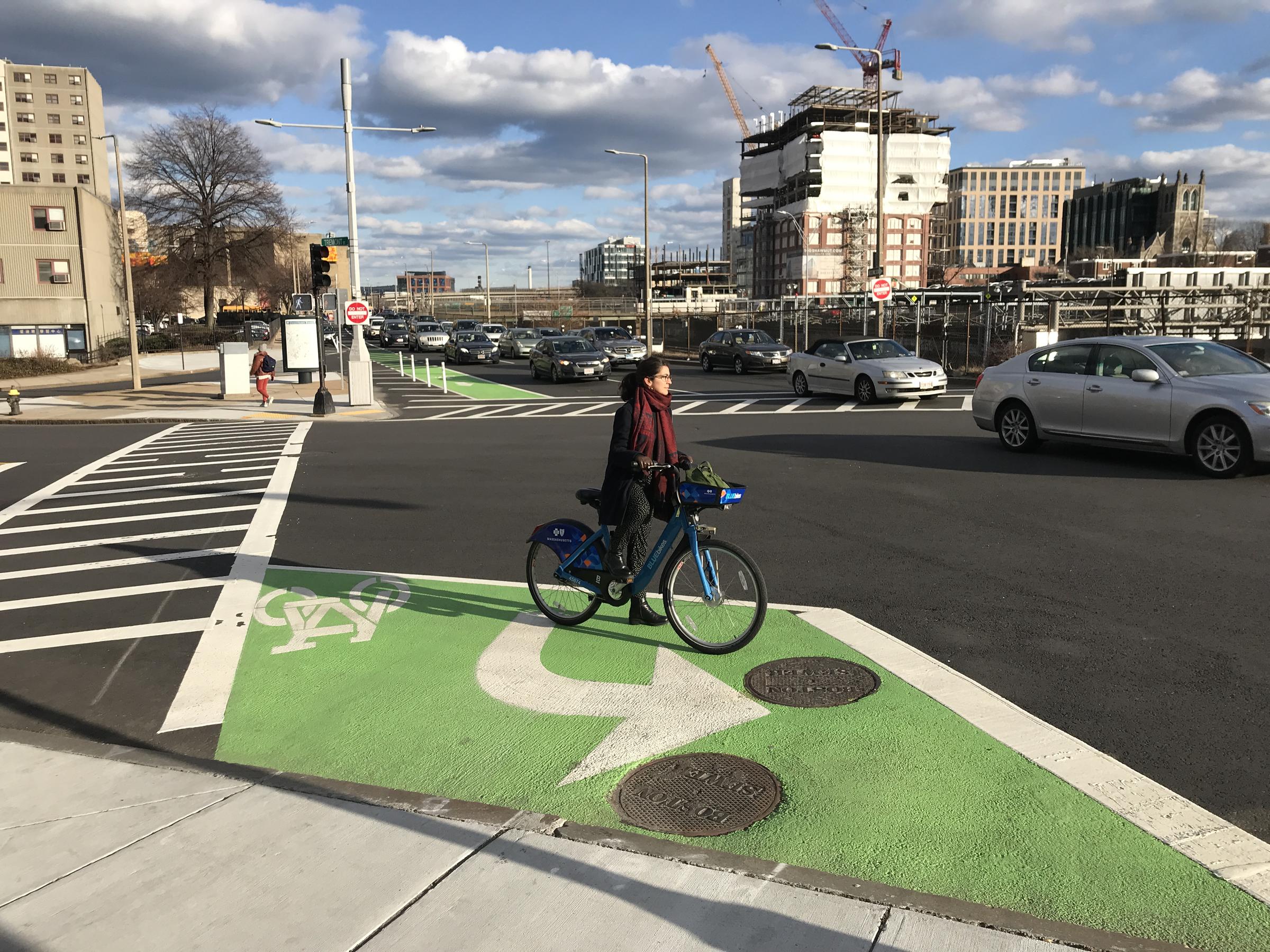Better bike lanes: Design elements
You can learn about the different bike lane design elements in the City of Boston below.
These elements create more comfort for people biking along streets and through intersections. We incorporate these elements in our designs where they are appropriate. For more information on our bike lane efforts, please visit our Better Bike Lanes website.
Buffers
Buffers increase space between people biking and people driving. They help prevent unintentional collisions that could cause serious harm to the people involved.
Buffers are always part of the design for separated bike lanes and buffered bike lanes. They provide space between people biking and people getting into or out of a vehicle. Buffers may be painted on the street or constructed with curbs.
All parking-protected bike lanes have a buffer area that is at least three-feet wide. Drivers can use the buffer area to safely get in and out of the car and to load and unload items. The buffer may be wider near accessible parking spaces, and when next to bus stops.
Reducing the risk of "dooring"
Buffers offer more space for people to open their car doors without unexpectedly hitting a person biking, which is also called “dooring”. "Dooring" is one of the most common types of crashes involving people biking.
Offset intersections
Offset intersections create more space between bicyclists and vehicles turning across their path. This extra space helps drivers see people biking before completing a turn. It also encourages drivers to turn at slower speeds.
It can be hard for turning drivers to see a person biking next to their car. This photo shows the driver's view at an intersection with a standard bike lane. There is a bicyclist on the right side of the car. But, they are not visible in the mirror at all. Only a small part of the bike tire is visible in the bottom right corner of the window.
Offset intersections help turning drivers more easily see people bicycling and walking. This photo shows an intersection with a separated bike lane and offset intersection. The extra space between the car travel lanes and the bike lane allows drivers to:
- begin their turn without fully blocking vehicles behind them
- see people bicycling or walking, and
- yield to people bicycling or walking.
At an offset intersection, turning drivers don't need to fully turn their head to see a bicyclist. They also don't need to rely on their mirrors. This photo shows the turning driver's view at an offset intersection. A person biking is clearly visible to the driver.
Offset intersections reduce the area where crashes can occur between drivers and people walking or biking. Offset intersections also slow down turning vehicles. This can reduce the severity of turning-related crashes.
Bike signals
In many cases, people on bikes can use the general traffic signals. But, in some cases, we provide bike-only signals.
Bike signals are useful when our streets have:
- high volumes of turning vehicular traffic
- high volumes of bicyclists
- a two-way separated bike lane, or
- skewed or multi-leg intersections that are unique.
Signal details
At intersections with bike signals, cyclists should not follow general traffic and pedestrian signals. The bike signals show the safest time for bike riders to go through an intersection.
We have two types of bike signals in the City of Boston:
- Some are standard signals with a sign showing that it is a bike signal.
- Others also have the sign, but the signal itself has a bike symbol.
Intersection conflict markings
On streets with bike lanes, we add green stripes where there is the potential for conflicts between drivers and bicyclists. They alert turning drivers to look for people on bikes.
We use this treatment most commonly at intersections and driveways. In some places, we use green stripes to help show people riding bikes where they should be positioned in the street. This is especially important when they are crossing Green Line trolley tracks or bridge joints.
Bike boxes
At some intersections with signals, we add a bike box between the crosswalk and the traffic lane. This provides a safe and visible spot for people on bikes to wait for the light to change.
Two-stage turn boxes
For people riding bikes, it can be tough or scary to merge across busy lanes to make a turn. At some intersections, we provide a two-stage turn box to make that turn safer and less stressful.
First, bicyclists ride straight through the intersection to the two-stage turn box. The box is usually on or near the opposite corner. Then, they turn their bikes to face in the direction of their turn. When the light turns green, bicyclists continue straight.
Two-stage turns are often necessary at intersections with separated bike lanes. Exiting the bike lane mid-block before the intersection is generally not possible.

